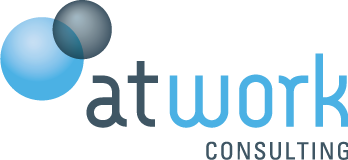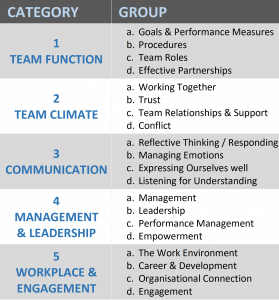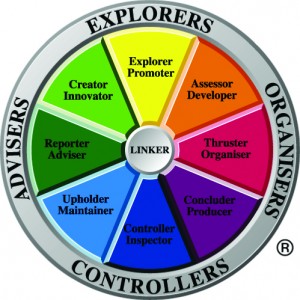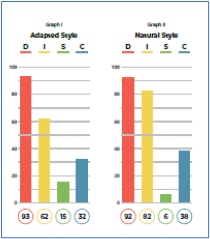Executive coaching
Today, up to two-thirds of senior execs now access the support of an executive coach. CEOs, executives and senior managers are now under pressure to deliver more responsive strategic and tactical turnarounds as the environment and competitors shift around them, and more effective people management. Coaching helps. People succeed in most high-performance fields of life - sport being just one example - using regular coaching. Coaching for leaders makes such a huge difference, because the performance of a leader (whether great or not-so-great) is magnified through its impact on people around them.
If a leader can improve their own performance in even small increments, that will translate into performance improvements for their team, and that means big results. For executive teams, this impact is even greater. Exec teams are responsible for performance not only down their lines, but also ACROSS the organisation - which is often where things fail either systematically or under pressure. Think silos, lack of departmental cooperation and synergy - this is all driven by the work of the exec team.
When we commence an exec coaching program, we typically start by mapping strengths and challenges, and defining coaching goals. This will often include input from above, below or around the exec or team to ensure our approach links the program to organisational goals. We benchmark current versus desired performance to really nail the objectives, and be in a position to measure progress and outcomes. This alignment and our approach is a key to success in sustainable development for executives - both individuals and teams.
The alternative to using coaching?
Why not just leave your senior people to ‘do it themselves’? Coaching for leaders and managers helps them develops awareness, skills, and behaviours far more effectively and faster than if the individual is left to address these challenges on their own. If a manager ongoingly fails to hit targets or reach their potential when a coaching program would have helped turn things around, there is a huge cost to the organisation. It's far more costly than a coaching program fee! Under-performance of team members, sub-optimal relationships with other managers and teams, possibly having to replace people in key roles ... all very impactful in a bad way, and not just financially! Our coaching supports executives in achieving their objectives. It brings offering insight on issues, support and focus through the process, while facilitating the learning and consolidation of new skills. We monitor progress, with headway towards objectives being reviewed and evaluated, and our programs can be revised midstream if needed. This is another benefit of not just leaving managers and exec team members to 'go it alone' - but rather providing the support that helps them and the team win.
Coaching and high-performance organisations
It's likely these days that every high-performing organisation will have coaching embedded into its development culture and systems. But if not, it's time to get started. Coaching outcomes include personal fulfilment and increased confidence for the executive. We work to ensure this translates to a positive impact and a real return to the team they lead, the teams they're members of, and the organisation.
Group Coaching Programs
Leadership Development Seminars
Bringing your leadership or management team together in a development process can be a powerful way to improve organisational performance. This is because of the massive leverage power that leaders and managers have. And it is important to note – if this power is not being used constructively it is probably doing untold damage! It’s well worth investing a relatively small amount in these programs – what’s the gain if they just help you win or retrieve one major customer, or avoid one significant service disaster? And they will. Atwork provides leadership solutions that are well researched, industry leading and proven to increase your organisation's effectiveness. While we can deliver standard leadership programs, you can really make a sustained and major boost to performance through a customised leadership development program. This would typically start with some benchmark assessment, leading into the delivery of an impactful program, and wrapping up after followup assessment to test the achievements of the program and progress of your team.
Leadership programs deliver long-term
An effective internal leadership development program should target not only current leaders, but also future leaders. Such a program complements your succession planning through building your organisation’s ability to seamlessly fill key executive vacancies with new leaders from your internal leadership group. If you are not developing your future leaders, you limit your options when vacancies arise, and seriously damage the motivation of people just waiting for an opportunity to grow and contribute.
How a program works
A leadership program usually includes both group and one-to-one coaching work. It's intensive and transformational. We usually undertake team or individual performance assessments or, if needed, organisational surveys that can help target the approach. An effective program might be designed more around the team or individual level, depending on the issues and challenges identified as a result of this analysis and the input from the program sponsor, leaders and team members. Programs are typically run over a period of between 3 and 6 months depending on factors such as urgency, staff availability, the available budget, and program goals.
Assessing Leadership - where Performance really matters
Performance evaluation is tricky enough at any level, but how to assess the performance of the individual (or team) at the top? 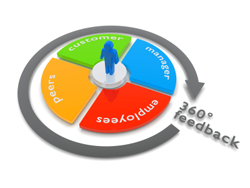
Governing bodies such as Boards and Councils can find it tough to objectively and comprehensively assess the performance of a CEO - and yet it's a key part of their role. Expert support can be very helpful.
Key performance measures are important, but while the measures might be clear, the performance against them often isn't. A board is often not directly in touch with day to day operations, and is often distanced even from the people the CEO interacts with in their daily work, so it's hard to put a full picture of leadership performance together.
Sometimes more is needed – in the case of a Chief Executive or GM, a full view of that leader’s performance as seen not only by board members, but also by staff reporting to the individual, and even external peers or stakeholders.
Just KPIs, or a deeper approach
As well as assessing against key performance indicators (KPIs), one solution to the challenge of reaching an accurate view of leader performance is to use a 360 degree approach. A 360° process incorporates response information from “all around” the leader. This can bring a fantastic level of objectivity that's often otherwise hard to guarantee aside from in pure financial performance measures. We bring a range of tools and options to this process, including:
- Our platform of choice - the Leadership Circle suite including individual and team 360 profiles - matching the fast pace of today's environment with a comprehensive description of leadership capabilities and a system that measures performance against these.
- A 360 tool based on assessing Emotional Intelligence – the EQi 2.0;
- A 360 tool based on assessing Transformational Leadership – the MLQ;
- Other models - we can discuss these with you directly.
To support this with KPI-based measures, we offer expertise in designing and implementing fully customised reviews, implemented online, and based on existing measures such as organisational values, KPIs and other agreed objectives.
(and we can provide the same for leaders at the next levels in larger organisations.)
You'll end up with a comprehensive and very accurate picture of performance, able to be benchmarked and re-tested over time, and generating insights to enable you to develop accurate development and performance objectives for the next phase.
What our clients say...
"I wanted to say a big ‘thank you’ for the work you diligently undertook with YPRL and especially the sub-committee tasked with the CEO appraisal. I sincerely thank you for your professionalism and balanced views, together with a calm perspective. Your knowledge and insights in assisting the sub-committee with the appraisal and KPI process were invaluable."
Cr Mary Lalios Councillor, City of Whittlesea, former Chair, Yarra Plenty Regional Library Board
Accelerated Leadership Curve
For Managers and Executives – an intense program with a mix of group sessions and one-to-one coaching. A typical structure consists of:
- Share your leadership development path with other committed people from a range of organisations, or form a group from your own organisation. Guest speakers. Typical group size 6-10.
- 3 group sessions – Introduction, Intensive, Optimise.
- 3 customised personal coaching sessions over a 2 month term.
- Personal profiling, typically using Team Management Profile and EQi2 to benchmark your management style and all-important ‘soft skills’.
- Option of team performance profiling for an intact team from one organisation (additional fee).
- Coaching goals set; goals that inspire, motivate and activate; Projects and implementation actions; Access to online forms and resources.
- A high impact program that is demanding, confrontational where needed, and highly enjoyable – it stimulates a giant leap in terms of leadership performance.
Program Outcomes
New understanding of leadership style. Learning what it takes to be a leader in this environment of volatility, uncertainty, complexity and ambiguity. Highly enhanced self-awareness. Improving the capacity to manage self. Improving the ability to influence others. Focus on goals and outcomes for success. Dedication to achieving results.
Stepping up to leading a team
For many of us entering into Team Leadership and Management for the first time, taking on the role effectively can require ‘upgrades’ in our personal operating systems - impacting directly on how we manage ourselves and others.
The Challenge
We, probably like you, have seen it all - including the challenge for new managers after a shuffle when the team they step in to manage includes their own former manager. For some new Team Leaders and Managers, taking on the role can require a real makeover in areas including identity, capability, beliefs and behaviours .... while for others the need may be a good introduction to some of the fundamentals of management.
The step up from being a team member
For the first time that new manager is no longer just one of the team. It means leaving behind past ways of connecting and relating, while building a new style - as manager. With management comes a whole new level of responsibility. It’s not enough any longer just to be a skilled technical practitioner; the new manager is charged with the setting directions and supporting the performance of others. Again, perhaps for the first time, the new manager has to establish objectives, allocate work, delegate, and lead the team. It’s a big step, involving many revisions to style, and more difficult without the knowledge and support of a mentor and/or coach. And why would anyone want to make things more difficult for the new manager?
The Coaching supplement
Coaching does not replace mentoring from more senior managers inside the organisation. Ideally, the new manager has access to both.
An Atwork program for team leaders / managers
A typical Atwork growth program for team leaders and managers includes:
- The role of managing – fundamentals;
- Your personal management style;
- Your identity as a manager and leader;
- A manager’s toolkit;
- Stepping up up from being a team member;
- Linking team goals to business strategy;
- Establishing objectives, allocating work, delegating;
- Setting directions for teams and individuals;
- Team dynamics and team leadership;
- Managing / supporting the performance of others;
- ‘Difficult’ staff members / underperformance / challenging conversations;
- Manager as coach.
How a coaching program works with Managers
A customised coaching program might include profiling, using tools such as the Team Management Profile (TMP) and EQi2 to benchmark management style and soft skills. Goals are established related to the development areas we identify, and tied in to the unique challenges of the role and the team. Many new managers need basic introductions to a management skillset included in their coaching program. We include practical development applications that make an immediate difference for them at work.
Outcomes
The outcome is a fast-track to management capability. The gain is multiplied - the new manager and their team are quickly up to speed and ‘kicking goals’. The team is settled, comfortable in the knowledge that their new manager does know their stuff. Performance is what it’s all about, and satisfaction with the new manager from above, below and around is critical in getting them through to that level.
Personal coaching
No matter what stage in our career, personal coaching can be beneficial for most of us at one time or another.
Why personal performance coaching?
People take on a personal coaching program when there's a perceived gap between their present and desired styles, behaviours, performance results or satisfaction in their work. Aside from specific purpose coaching such as leadership or management development, the driver may be that a person’s patterned ways of working have reached their limits, and they're buried in unfinished projects, not achieving their goals, or unhappy in their role. It could be a matter of specific personal skills needed to address current performance issues. Sometimes it's a need to develop new strategies to deal more effectively with changes at work.
Customised and standard content
So people come into a personal coaching program for many reasons. As a result personal performance coaching is more customised, and leadership / management coaching follows a more standard program format. In either case we find some themes are pretty consistent, and these allow us to be efficient in our work, while ensuring we meet individual coaching needs effectively.
How an objective third party helps
Having the services of a trusted, skilled, objective third party can help us achieve a new perspective on life – within the workplace and possibly also outside. This support can be also vital when staff are considering or experiencing transitions in location, career, role or other aspects of life.
The benefits are more than personal
An organisation’s success is based on the performance of its employees. In a personal coaching program we focus on the links between individual performance and the organisation’s strategy – helping the individual meet whatever performance challenges they are facing. Personalised coaching is sometimes the key in enabling individuals to either deliver in their current role, or take the steps to their next position. In either case, the joint goals of a personal coaching program involve working towards positive outcomes for both the organisation and the individual.
Individual performance coaching
Sometimes good people get stuck. This is where an individual coaching program can help. Again it’s that great formula for success, diagnose, build recognition of the issues and challenges, and get to work addressing them. Personal growth is the key to improving performance. A good coaching process will also quickly identify when a person doesn’t have either the capacity or the willingness to do the job. We can assist this with tools such as EI, personality profiling and delving beneath the surface to identify where the key leverage points are.
And...
Naturally, Atwork also brings you an extensive range of other leadership products and programs, management advice, performance coaching, and introductory management development workshops. So when you've made the decision that it's time to build high performance leadership across your organisation... get in touch.
The Teams Deep Dive - measuring and improving team performance & engagement
Does your team (or teams) appear to have any of the following symptoms?
- performance issues,
- low team member morale,
- struggling leaders,
- internal conflict,
- difficulties collaborating with other teams,
- or maybe a combination of these?
You know that something isn’t right, but it’s hard to pinpoint just what… The Teams Deep Dive will help!
The Deep Dive Survey is a sophisticated questionnaire incorporating the learnings from our work with teams over the years now. The results provide a comprehensive picture of team performance and member satisfaction, and can be put to work straight away to generate improvements in your teams. Reports can contrast outcomes for multiple teams in an organisation where it’s identified that this will be useful. The data can be used to model the success factors for higher-performing teams, enabling other teams (and team and business leaders) to use the insights to set up the most impactful improvements exactly where they’re needed.
The Teams Deep Dive has been recrafted over many iterations, still including some elements from our original Team Development Questionnaire, in use by us since 1999 (and then based with permission on a model by the great teams expert Gregory Huszczo). Now delivered online, it helps us work with your teams to assessed the areas outlined in the table below – across the highest-level clusters referred to as Categories, and the next level clusters referred to as Groups. Each Group incorporates the results for three survey questions related by the Group theme.
The Major Categories and Groups of questions in the Deep Dive survey, with 3 questions for each Group, are:
While in some surveys we use 5-scale ratings options, for the Teams Deep Dive it’s a simple 3-option rating scale where team members respond to a series of statements via the options of:
- We’re Strong (a 3 rating)
- We’re Middling (a 2 rating)
- We’re Struggling (a 1 rating)
This makes for an incredible set of insights into what’s working, and what isn’t.
‘A team’ has been famously characterised (by Katzenbach and Smith in The Wisdom of Teams) as “…a small number of people with complementary skills who are committed to a common purpose, a set of performance goals, and an approach...for which they hold themselves mutually accountable”.
How great it would be, if all teams just functioned like that! But we all know that great teams don’t just happen. The work of structuring and resourcing a team to function this way is always significant, and sometimes incredibly challenging, as (again) we all know from having worked with and in dysfunctional teams.
If that’s happening, please get in touch – it’s a great feeling for us and you when we work with a team where things aren’t quite right, and help them turn it around.
Comments are enabled across the survey, so that team members can throw further light on the highs and lows as they see them.
The Deep Dive survey input can be supplemented with interviews where needed, either initially or to follow up key areas.
Building High-Performing Teams that are a great place to be!
Teams potentially bring huge benefits to organisations, but it doesn’t always happen that way. Sometimes a team needs a review and reset, sometimes a major rebuild, and sometimes just an opportunity to get together in a facilitated framework and rebuild themselves.
Teams are the engine-room of performance, if...
The use of teams from the senior executive level to production and service operations is now standard practice in most workplaces. Teams potentially bring huge benefits to organisations, but it doesn’t always happen that way. We’ve all seen how allowing under-performance in team behaviour and outputs can impact badly on the bottom line.
Review and optimise
We can review your teams for performance and satisfaction. We can optimise team performance and team leadership, including effective teamwork between teams. This can be through a targeted team development program or other approaches. One of our recent programs, Built to Last, for a client’s Technology managers, had additional benefits in the area of team development. Through working together on enhancing the strategic value of their products and services, the team 'just happened to' improve their teamwork, demonstrating that there are many ways to enhance team performance while meeting other key goals.
TMS (Team Management Systems)
Our director and principal consultant Paul Murphy is accredited in several instruments specifically related to leading teams. These include - from Australia's Team Management Systems, the Team Management Profile® (TMP), of which we've now implemented some 400 with individual managers and teams.
The Team Management Profile (TMP)
We’ve only used this model so much because it’s so effective and impactful, and because our clients agree!
While we work with many profiles, we’re yet to find a person who has not found their TMP accurate and revealing. The TMP is a workplace-based personality profile assessment that characterises a person’s management and teamwork style, based on their personality preferences. It outlines how this plays out at work for the individual and the team, bringing together personality preferences and work preferences.
The TMP was developed in Australia and is now used successfully worldwide. We think it’s pretty much an essential resource for any team leader or manager, as it gives people amazing insights into the strengths and challenges of their 'default' style, and targeted ideas (particularly when used with coaching) for maximising their effectiveness in working with others. The TMP can be especially relevant for teams and leaders involved in project work, as every position around the wheel brings a focus to specific stages in any project. We'd be happy to discuss how this can work for you.
DISC
DISC (an acronym for Dominance, Influence, Steadiness, Compliance) is a complex model made simple by years of research and practice. It identifies behavioural styles that can open your eyes to improving your interactions with others. The model covers four spectrums of behaviour.
- Dominance (D) – How we deal with problems and challenges.
- Influence (I) – How we deal with people and contacts.
- Steadiness (S) – How we deal with the pace and consistency of the environment.
- Compliance (C) – How we deal with procedures and constraints.
An individual will have some degree of each of the four behavioural styles (i.e. we are not just one style). Whether an individual measures "high" or "low" on a spectrum is not an indication of “good” or “bad” behaviours; rather, it’s the profile of behaviours that are visible and recognisable on the surface.
DISC profiling is used by an estimated 75% of the Fortune 500 because of what it delivers to a team. It continues to be the most popular choice for professional development as well as recruitment and selection.
This assessment provides a neutral language to discuss individual differences between candidates and/or team members. Our sophisticated report writing algorithm creates a customised report for each individual and includes:
- Behavioural style and graphs,
- General characteristics and value to the organisation,
- Communication tips for managers, teams and individual contributors,
- Areas for awareness that support sales, service, leadership and team building among others.
Simply stated, DISC measures how we behave and communicate. One of the most powerful things about DISC profiling is the fact that people identify with the report almost immediately! The real value comes from using the information in the report to understand oneself and others to adapt and be more effective.
The Linking Skills Profile (LSP)
For team managers and leaders shows how well a person uses ‘linking skills’ to enhance team performance. Linking skills are relevant for all team members, but vital for team leaders, managers, and organisational leaders. 'Linking' effectively is now even more vital than before, with the rapid growth of virtual teams in hybrid workplaces. It's challenging enough to lead a team when you're all in the same room, and there are new challenges with so many teams now consisting of or including remote members. Over time, we will find that it's asking a lot of team leaders and team members.
The LSP is a 360° review tool that provides the basis for a structured development program that can be particularly helpful for new team leaders and managers, as well as any manager without any prior structured management training.
Whether you want to trial the TMP, LSP, or any of our other great tools for individuals or teams at work, or just know you need to get a team functioning at a higher level, get in touch so we can work out what the best approach is going to be.
What our clients say...
“The results to date have not only met our expectations of the program, but also exceeded them. In the early stages following, we’ve already improved individual management performance, and we have a significantly improved leadership team ... it’s already become a team that works more effectively together, focused around a vision and our key common goals”. CEO
"Atwork Consulting's performance coaching techniques have been of great assistance to my team. This has been invaluable in the way Paul has provided coaching to a staff member who was under-performing. His work clarified the development goals to the staff member and guided them through the 'performance warning' process. Senior Manager, Local Govt Sector
"Paul's coaching has improved my own understanding and built my capacity to motivate others to perform. The ability to share staffing matters on a confidential basis and gain meaningful advice has been highly valuable and a significant component in achieving high performance from my team." Director, Local Govt
“Recently the organisation I was working for decided on some internal changes that changed my job substantially....In order to think clearly about the impacts of this change on my career, and to explore the less obvious possibilities that might exist, I spoke with Paul. Over a couple of meetings and completing some useful tools to gauge my emotional intelligence and career interests Paul helped me look at this change with fresh perspective. I was able to work through a difficult time with genuine comfort and make hard decisions to change careers at age 42 with relative ease. The result for me was to move from senior management in the public service to a small dynamic company. My new career is much better aligned to my interests and skills and is locally based with much less travel. In hindsight it almost seems surreal how little stress was involved in deciding to make a major career change. The key factor for me was having someone to help me to think clearly about what I really desired to make more informed choices. Paul made it a thoroughly enjoyable experience and I can recommend it to anyone”. General Manager, Consulting/Development Business.
“Paul coached me regarding my work experiences; made me aware of personal growth and achievements in my working life and used these attributes when preparing my resume....Ultimately I achieved a wonderful new role. I have no hesitation in recommending Atwork Consulting. Senior Manager, Health & Community Services.
